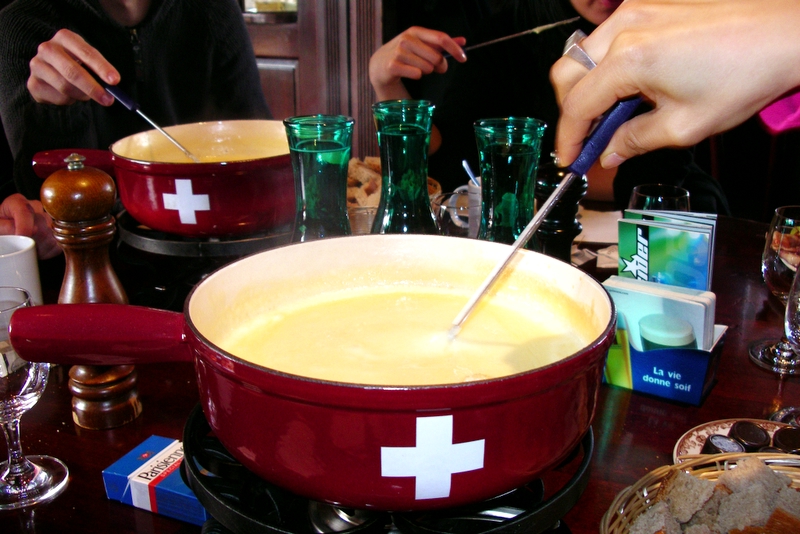An Oxford professor has attributed a spike in the sales of fondue sets to the global financial crisis, geopolitical tensions in the Korean peninsula, and Brexit.
The traditional Swiss dish has seen something of a comeback in recent times, with retailer John Lewis seeing a tripling of sales last year, as online hits for cheese fondue recipes soar.
While the reason for this surge in popularity is still up for debate, food psychology expert and fellow at Somerville College, Charles Spence, has claimed that Brexit and North Korea might be responsible for the fondue renaissance.
Writing in the International Journal of Gastronomy and Food Science, Spence said that the sales spike may seem surprising at first “given that fondue doesn’t fit with either current trends toward healthy eating or the rise of more Instagrammable dishes”.
However, he goes on to argue the fondue craze can be better explained as an embodiment of social angst about the future – prompted by events such as Brexit.
He notes: “The nostalgic (reassuring) element of fondue may be particularly appropriate at the present time when the world seems like such an unpredictable and dangerous place, what with the recent global financial crisis, the North Korean situation, Brexit, the Migrant Crisis, etc.
“In this sense, [Claus-Christian] Carbon’s observation that consumers tend to shift toward rounder cars at times when world seems like a dangerous place, and toward more angular forms when all is well with the world may be relevant.
“It would not seem unreasonable, I think, to suggest that nostalgic comfort foods become more appealing/fashionable at those times of local/global uncertainty too.”
Professor Spence, who is also known for helping design many of Heston Blumenthal’s famous dishes, also believes the Swiss origins of fondue are particularly pertinent from a “gastrodiplomacy” perspective.
“One can’t help feeling that at a time when the UK is figuring out if/how to separate from the rest of Europe, that this nostalgic food stands originates from a part of Europe that stands outside the European Union but is still connected with the rest of the EU in much the way that many Brits would hope to achieve.
“Perhaps, then, the resurgence of the fondue can partly be explained by Brits trying, implicitly or otherwise, to convey an impression, or identity, through the food we eat of the future we would like for ourselves.
“In this regard it would be hard to imagine Black Forest Gateaux, Brie, or Bratwurst having anything like the same appeal at the present time here in the UK.”
Spence also speculates that the practice of dipping bread into gooey cheese is key to the dish’s revival, noting that it is well established that a person enjoys food more when they feel they have helped create it – a phenomenon known as the ‘IKEA effect’.
“One can, of course, argue about whether dipping pieces of meat into hot oil or stale bread into a bubbling pot of gloopy cheese really counts as participatory, but it certainly seems like an idea worth countenancing.”



